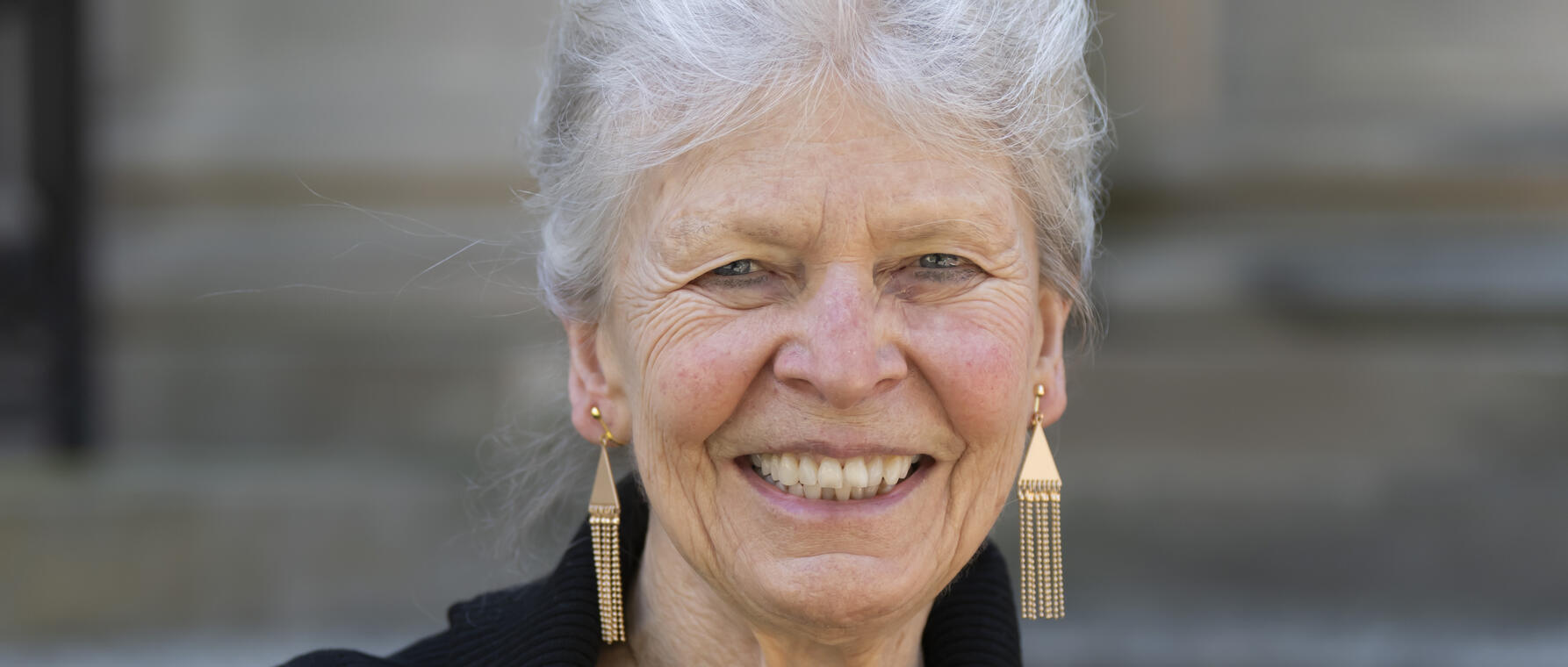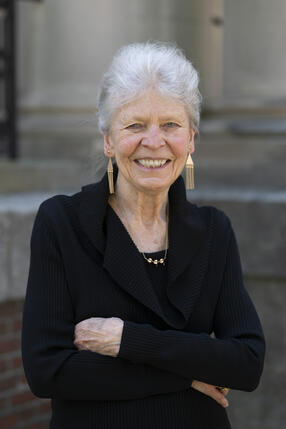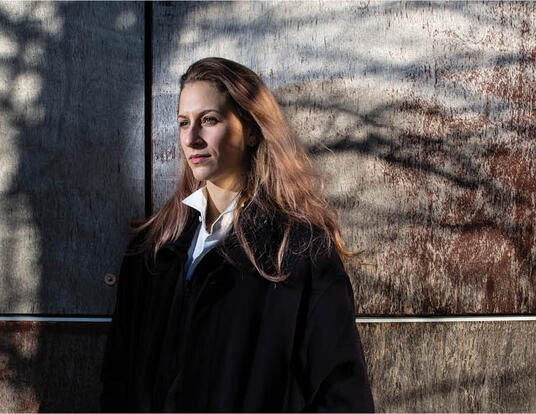Joan Argetsinger Steitz: 2024 Centennial Medal Citation

When companies like Moderna so swiftly created messenger RNA-based vaccines to combat the COVID-19 pandemic, they were building on decades of scientific achievement by giants like Joan Argetsinger Steitz. Steitz’s bold, fundamental work on RNA biology paved the way for many of the greatest medical breakthroughs emerging today, from mRNA vaccines to personalized medicines for devastating genetic diseases.
Steitz is Sterling Professor of Molecular Biophysics and Biochemistry at Yale, where she has served on the faculty for more than fifty years. She earned her bachelor’s degree in chemistry at Antioch College in 1963 and her PhD in biochemistry and molecular biology in 1967 at Harvard; she was the first woman graduate student in the lab of James Watson, who had recently won the Nobel Prize for his work on the molecular structure of DNA. The field of molecular biology was completely male-dominated at the time, but when Steitz was a postdoctoral fellow at the Medical Research Council Laboratory of Molecular Biology in Cambridge, England, she took on an RNA-based project that her male counterparts dismissed as too challenging—and began making discoveries that would revolutionize our understanding of RNA.
As a postdoc, Steitz managed to pinpoint the RNA “start signal,” the first step in the cellular process of protein synthesis. She later made waves by discovering and characterizing a new class of particles—small nuclear ribonucleoproteins, or “snRNPs”—that are essential in the genetic process of RNA splicing. Phillip Sharp, professor emeritus at MIT and a member of the Harvard-MIT Program in Health Sciences and Technology, describes this discovery as “field-establishing.” Sharp observes, “Even the name ‘snRNPs’ was a contribution of Joan’s. She created the language of much of the field and set a style that everybody wanted to emulate, but few achieved. I can only say: my words are inadequate to describe her.”
In addition to her scientific achievements, Steitz has served as a founder of the RNA Society, as an editor of prominent publications like the Proceedings of the National Academy of Sciences and the Journal of Cell Biology, and as a member of the Harvard Board of Overseers from 2003 to 2009. Nannerl O. Keohane, former president of Duke University and of Wellesley College, was a member of the Harvard Corporation during Steitz’s service as Overseer. “Joan’s perspective as a distinguished scientist was especially valuable at a time when expanding science at Harvard was on our docket,” Keohane recalls. Steitz and Keohane were also members of a committee of the National Academies of Sciences, Engineering, and Medicine that in 2007 produced the landmark report Beyond Bias and Barriers: Fulfilling the Potential of Women in Academic Science and Engineering. “Joan was one of the most respected members of the committee,” Keohane says. “Her strong and effective advocacy for women in science made her a particularly valuable contributor.”
One of the many scientists who benefited personally from Steitz’s advocacy is Melissa Moore, Eleanor Eustis Farrington Chair in Cancer Research at UMass Chan Medical School and chief scientific officer at Moderna from 2016 to 2023. When Moore was a postdoc, Steitz helped convince conference organizers who had previously turned her down to let Moore give a talk; that talk went on to become an influential paper in both Science and Nature. “It was just amazing for me to experience that kind of leadership and mentorship, and it was something that I’ll never forget,” Moore says. “There’s a whole generation of women scientists who followed Joan. She helped bring us along with her.”

Steitz has earned many of her field’s highest honors, including the Lasker Award, popularly known as “America’s Nobel.” In 2021, Steitz received both the Wolf Prize in Medicine and the Warren Alpert Foundation Prize, administered by Harvard Medical School, for laying the foundation that helped make mRNA-based vaccines possible. But the promise of her work extends well beyond the horizon of the COVID-19 pandemic.
“Because Joan was able to show that RNAs direct the process of splicing, she opened doors to understanding thousands of human disorders caused by aberrant splicing within cells,” explains Frank Slack, Shields Warren Mallinckrodt Professor of Medical Research at Harvard Medical School and director of the HMS Initiative for RNA Medicine. “That’s now led to a class of drugs that allows us to reverse some splicing defects. Joan also showed that the complement of RNAs within our cells is much larger than we originally thought, by an order of magnitude. This means that we have 10 times as many footholds to try and tackle disease. It’s really hard to overstate the impact of her work.” Beyond this, Slack adds, “Joan is widely regarded as one of the warmest and most supportive scientists in our field. She just has that aura about her: great science, and a great person.”
Joan Argetsinger Steitz, for your fundamental work in RNA biology, which has helped usher in an era of medicines with profound promise not only for global health, but also for individuals facing devastating rare diseases; and for your mentorship and advocacy on behalf of your students and a generation of women scientists, we are proud to award you the 2024 Centennial Medal.
Photo credit: Tony Rinaldo
Get the Latest Updates
Join Our Newsletter
Subscribe to Colloquy Podcast
Simplecast





